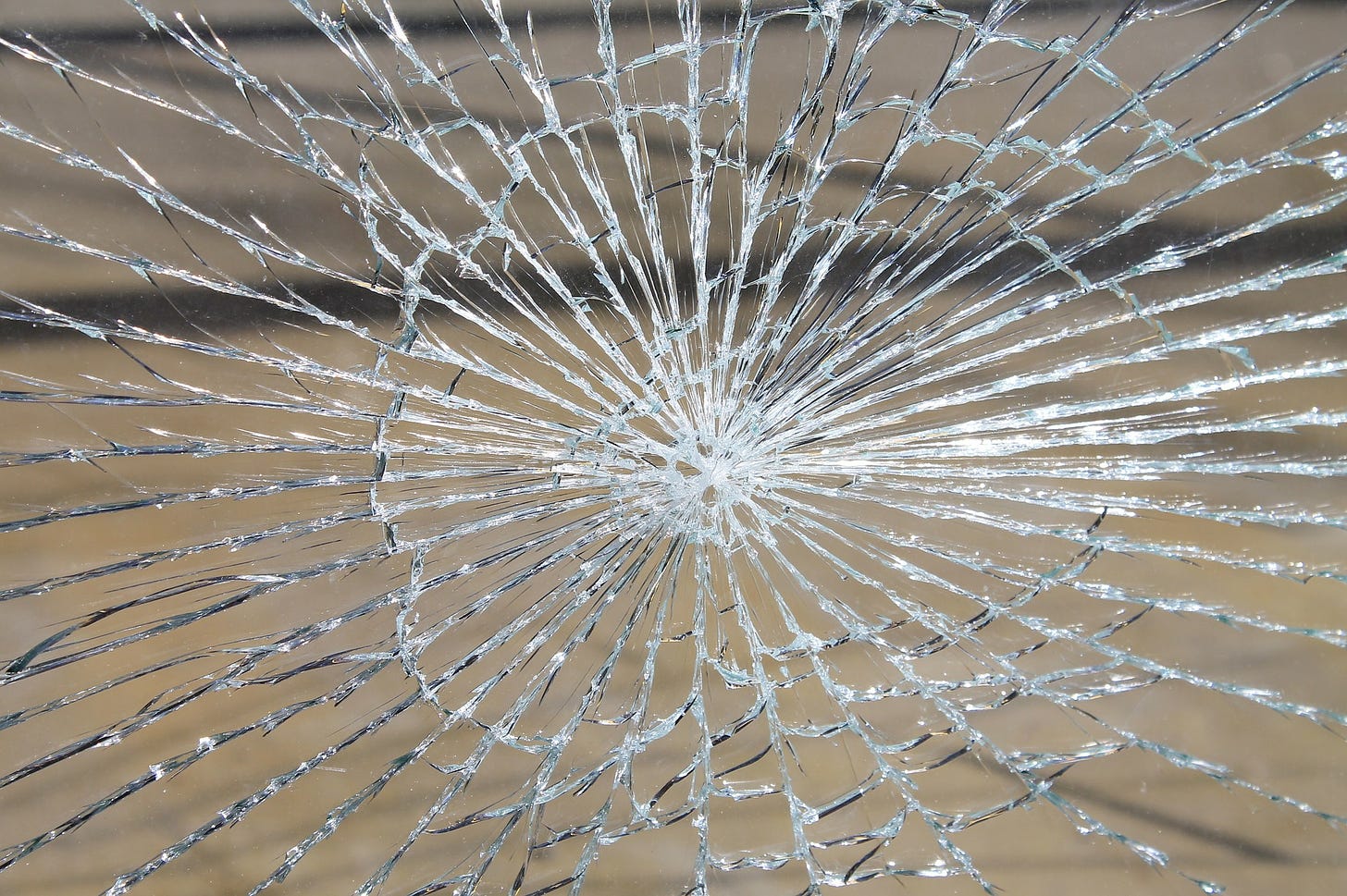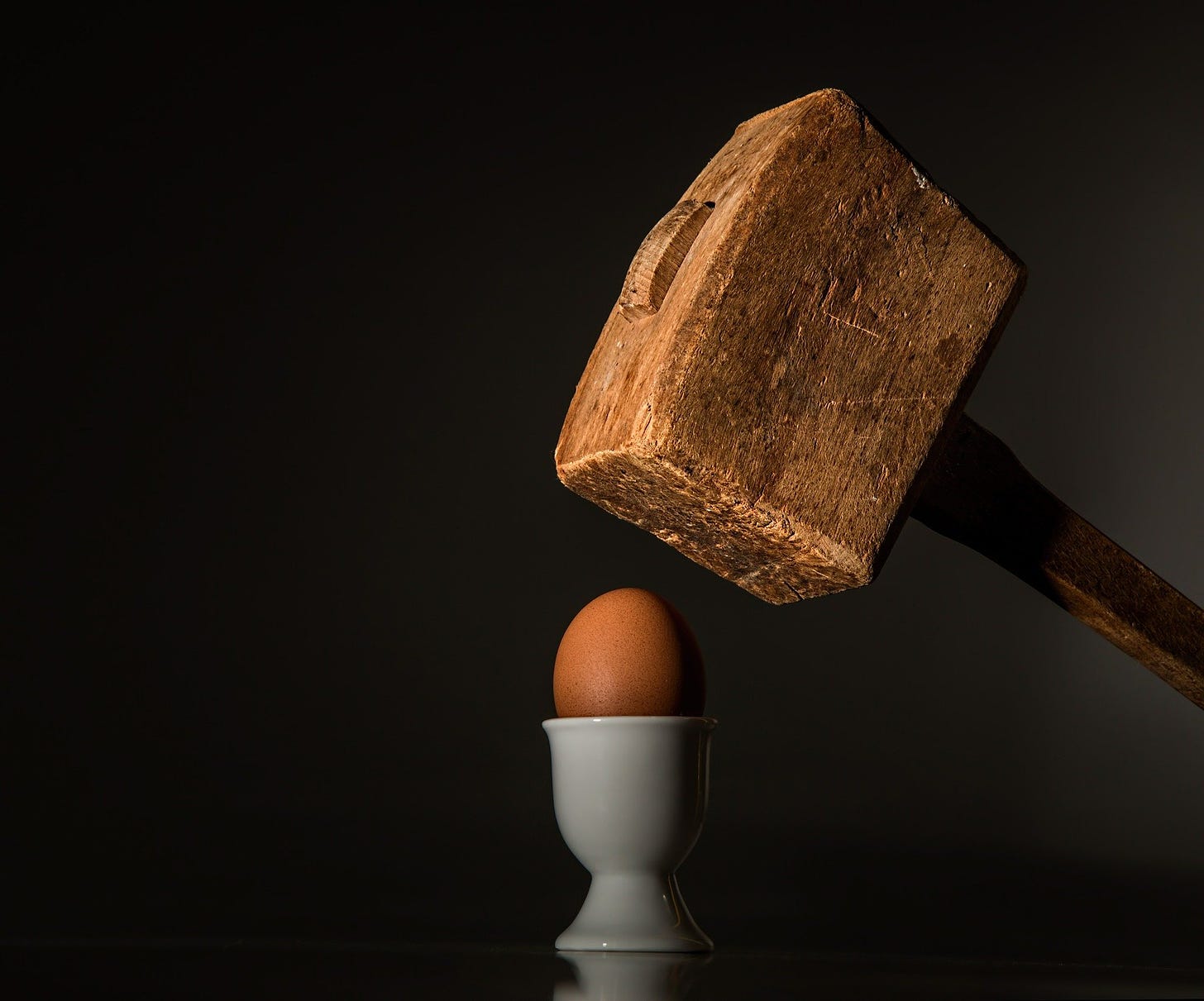Its Hard to Build but Easy to Destroy

The latest episode of The Seen and the Unseen, 'Being Muslim in India', has moved many people. For the first 90 minutes of the episode, Ghazala Wahab talks about her personal journey, which includes surviving a riot when a mob gathered outside her house. Responding to this, Windowpane member Saswata Banerjee sent me this note:
This reminds me of a couplet by Bashir Badr, who lost his home to a mob along with his diaries on which he had written his poetry.
लोग टूट जाते हैं एक घर बनाने में
तुम तरस नहीं खाते बस्तियाँ जलाने में
This feels impossible to translate, but here's an attempt:
We give all of ourselves to building one home.
You don't even blink as you burn this neighbourhood.
I found a great clip of Badr reciting this, and here's the full ghazal.
I'd also ask you to watch this video by the brilliant comedian Munawar Faruqui, especially the end of it. I choked up when I saw that bit, partly because he was in jail at the time, and it felt like he had presaged his own destruction. Thankfully, he is out of jail now, and has said he intends to continue comedy.
Faruqui is a special talent, and I hope he has a long career.
But think of those budding comedians who saw what happened to him and said to themselves, Nope, not worth it. Let's give the MBA entrance exam.
Is there a destruction there that is unseen? By destroying what exists, do we also destroy what might have been?
My point is not just about communalism though. Badr's couplet contains a profound truth about the world: it is hard to build and easy to destroy.
It takes initiative, effort and learning to build anything of value. It takes just ill-will to destroy it.
Few people can build intricate sandcastles. Anyone can kick it down. It takes millions of years of evolution to end up with an egg like in the picture below. It takes a moment to destroy it with a hammer.

We see this in our society — and we see it on social media.
I love connecting with people, learning from them and building a newsfeed of thinkers who seem to exist to provide me with insights. Social media can amplify the best in us.
It can also amplify the worst.
In fact, it sometimes feels as if it is designed to unleash the worse demons of our nature.
This shift began just over a decade ago. The Facebook 'like' and the Twitter 'retweet' not just changed social media, they changed society. They fed into our hardwired desire for validation. Suddenly, we were no longer expressing but performing . Every notification of a like or a retweet gave us a dopamine rush. We became addicts.
This went side by side with social media's tendency to enable echo chambers. We are also hardwired to be tribal, and there is a comfort in belonging to a group of likeminded people.
Add in the desire for validation, and we are driven to extremes. It is natural that we want to raise our status within our echo chambers. How do we do this? Not with nuance and self-doubt, which no warring tribe wants. Instead, we do it by signalling our virtue and by attacking the vices of others.
We take a hammer to those in other tribes. We take a hammer to those in our own tribe who we consider to not be pure enough.
In this process, groups always end up becoming more extreme than they were when they were formed. Social scientists call this process Group Polarisation.
This is why so much of Twitter is so toxic. People engage less and signal more. They don't talk to each other, but shout past each other. They don't address the argument, but attack the person making it.
Snark is an illustration of this. It is a preference of mockery over dialogue.
It is so easy to break things.
Social media doesn't make us monsters. It just enables what is already monstrous about us.
It has always been easier to break than to build. And we have always been wired to be lazy, and to take the easy way out.
And in a sense, politics has always been about breaking and not building. In a recent episode of The Seen and the Unseen, Raghu Sanjaylal Jaitley spoke about Carl Schmitt's contention that all politics needed an enemy, an 'other' to fight against. And you aim to destroy that enemy.
We see this in our modern politics. Someone could have spent a lifetime in scholarship and built up a body of great work — and could then be dismissed in one stroke as anti-national. All wisdom can be dismissed as propaganda arising from an agenda.
You can argue against one person, but how do you fight a million IT cell bots and Whatsapp warriors? They all have hammers.
Oh, and by the way, Pratap Bhanu Mehta was forced to quit Ashoka University yesterday. He has been a fierce defender of our constitutional republic. It took quite some effort to build that.
The episode I recorded with Pratap on The Seen and the Unseen is one of the most popular. Listen to that and tell me if it feels more resonant today.
This post is not just a complaint about the world, but a lament about myself. I have this tendency as well. I keep reminding myself that I must fight it — if for no other reason than my own peace of mind.
So I try to stay away from toxic people and toxic behaviour. I left a Whatsapp group of good friends when I realised that they spent 80% of their time bitching about others. My leaving probably enhanced the conversation, as they had one more person to bitch about.
In the writing class I run, there comes a time when the participants have to give feedback to each other. The ground rule I have set is that they must begin their feedback by saying what they liked about what they read. There is always something.
It's hard to stay positive when the world around you is full of negativity. One way to try is to shut yourself off and try to build things. I suppose that's why I revived this newsletter.
You can help by subscribing. It's free.
Source: https://indiauncut.substack.com/p/7-its-hard-to-build-and-easy-to-destroy
0 Response to "Its Hard to Build but Easy to Destroy"
Post a Comment